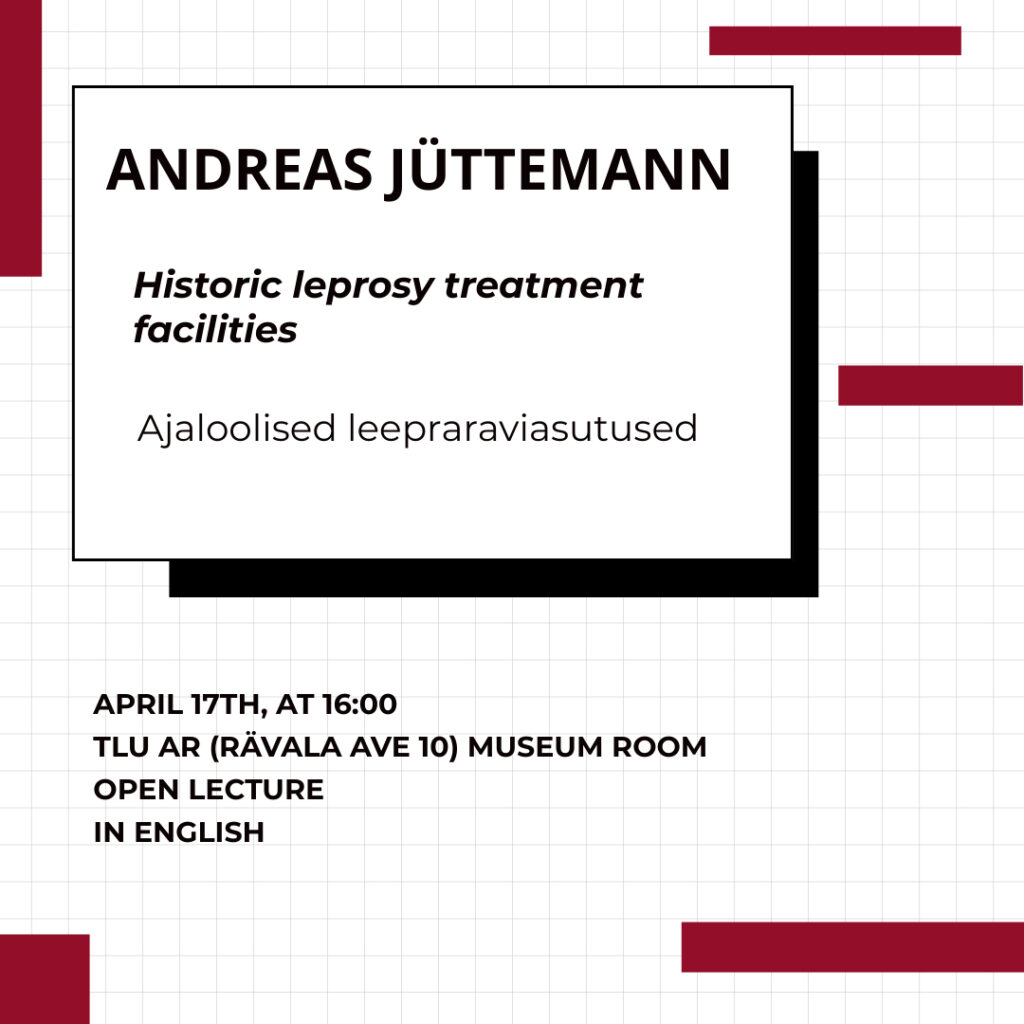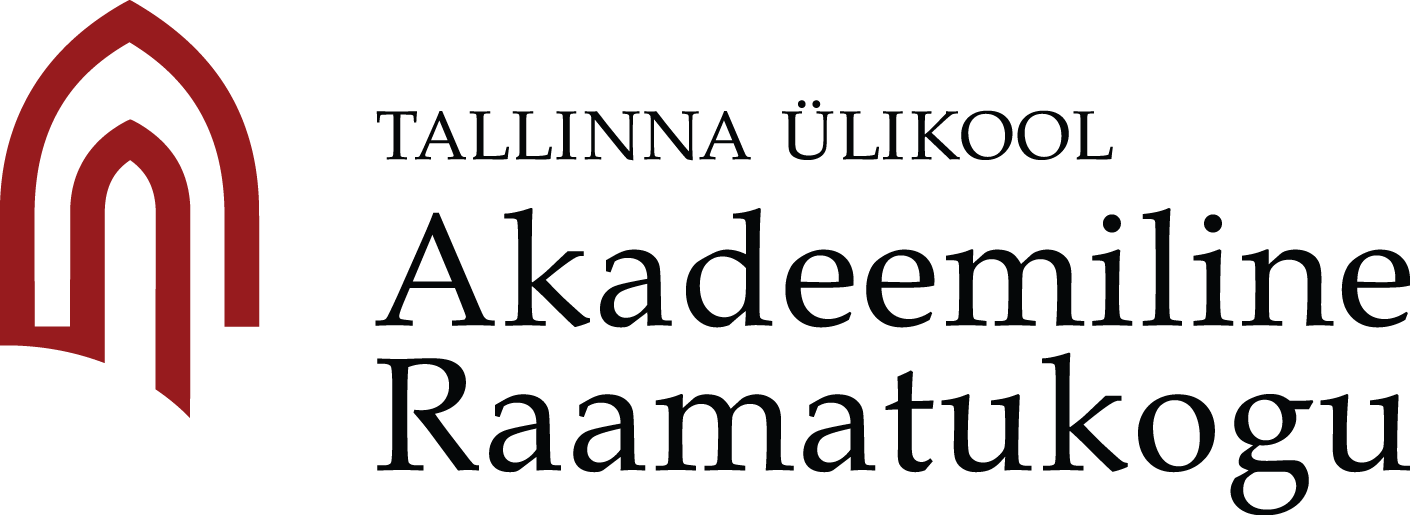On Wednesday, April 17th at 16:00, everyone is welcome to the museum room of the Research Library (Rävala pst 10) to listen to Andreas Jüttemann’s presentation on leprosaria.
Andreas Jüttemann – a medical doctor, historian of medicine, licensed psychologist, and master of urban studies – is the laureate of the Baltic Studies Research Grant at the Academic Library of Tallinn University. He is a faculty member at the Theodor Fontane School of Medicine in Brandenburg and a researcher at the Berlin Institute of Technology. Jüttemann’s doctoral thesis focused on tuberculosis sanatoria in Prussia, particularly in the Brandenburg region, the Harz Mountains, and the Krkonoše Mountains.
To introduce his presentation, Jüttemann says the following: around 1870, it was mainly children in the poor quarters of the cities in Europe who suffered from scrofula (neck gland tumours) and rickets. For weakened and city children, homes located by the sea – and therefore called “sea hospices” – were established with the aim of prophylaxis, education, and rehabilitation. After the first foundations in Margate/Greater London, numerous submissions were made on the North and Baltic Sea (e.g. on Norderney/D, Refnæs/DK, Hagavik/N, Kolobrzeg/today PL, Ventspils/LV and Högsand/FIN). Between the First and Second World Wars, many of these institutions were closed or converted into general hospitals and holiday homes. The aim is to recall this special form of children’s “spa”, which was founded about 150 years ago and is now largely forgotten, and to draw a comparison between those facilities.
In addition, the lecturer will report on his current research topic, for which he is in Tallinn, as part of a “workshop report”: He will look at documents on the facilities in Kuuda, on Lake Peipus and on Saaremaa, which were established by German-Baltic leprosy associations and knighthoods, and would like to compare the leprosaria in the Baltic States with the only Prussian leprosy home, which was located in Klaipeda, now part of Lithuania, until 1944. The lecturer shows photos and plans and presents historical medical histories from Klaipeda.
The presentation will be held in English. All interested parties are welcome!

